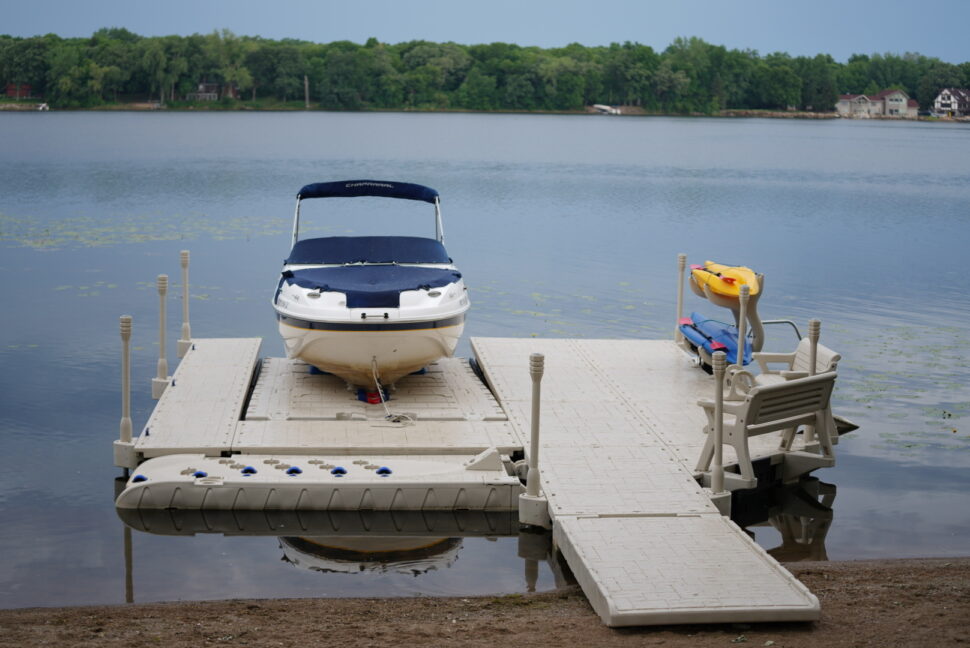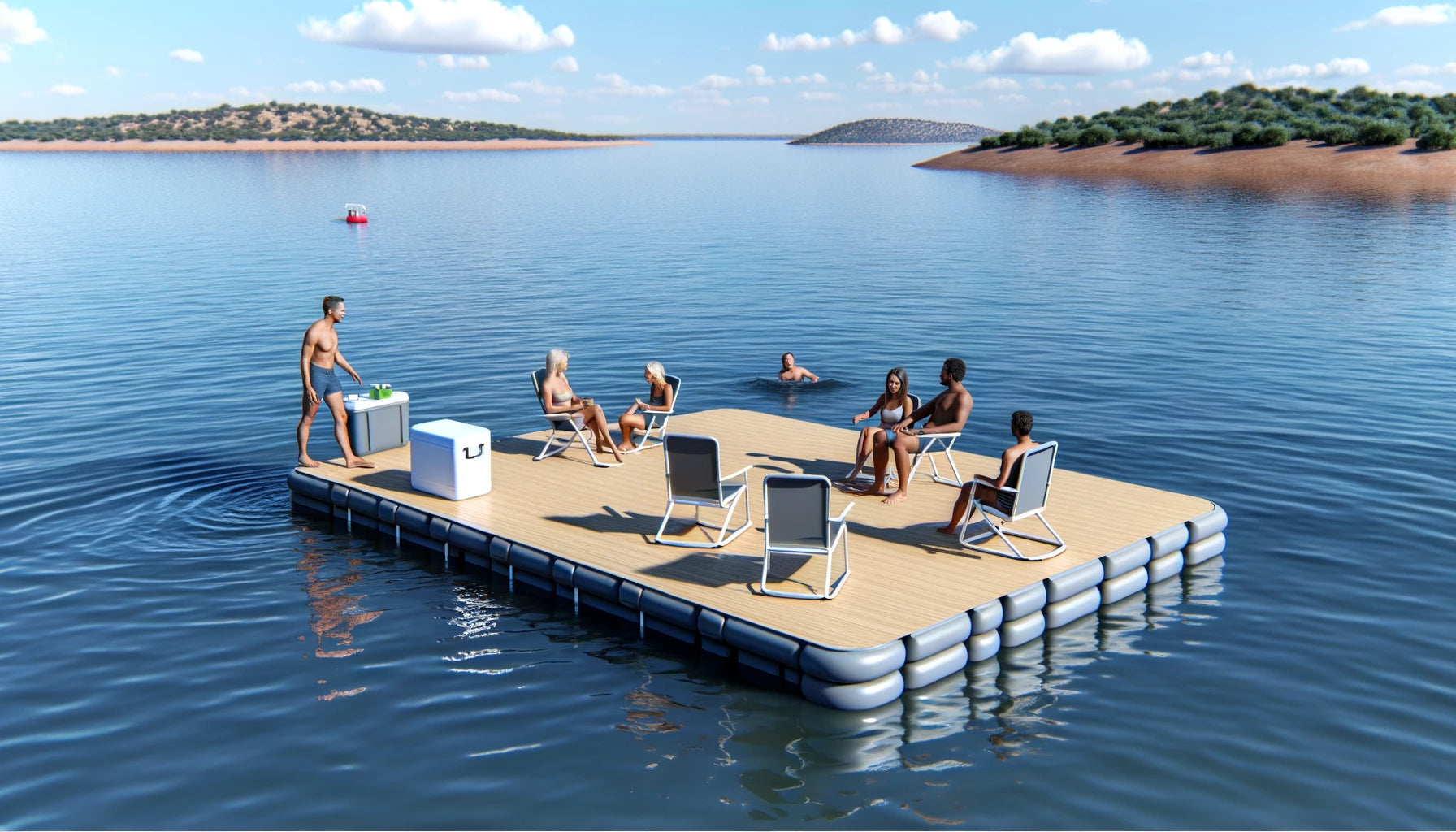Benefits of Collaborating With a Developed Floating Dock Company for Peace of Mind
Benefits of Collaborating With a Developed Floating Dock Company for Peace of Mind
Blog Article
Floating Docks: The Suitable Choice for Versatile Water Access
Floating docks existing an engaging solution for a range of water accessibility requires, offering flexibility that goes beyond typical mooring options. Their ability to adapt to rising and falling water degrees while ensuring stability and security makes them particularly beneficial for both leisure and business applications. In addition, the modular nature of floating docks helps with customization, providing to details requirements. Nevertheless, the nuances of setup and maintenance, together with the series of applications, require a closer assessment to completely appreciate their prospective benefits and implications for waterway accessibility approaches.
Advantages of Floating Docks
Floating docks deal countless benefits that boost water accessibility for numerous applications. Their capability to drop and increase with transforming water degrees makes them especially useful in atmospheres with varying trends or seasonal variants. This adaptability ensures that vessels can conveniently tie without problem for the water's deepness, supplying a reliable system for leisure, commercial, and commercial usages.
Furthermore, floating docks are typically created from durable materials that resist deterioration, making them suitable for long-term usage in marine settings. Their installment is commonly less invasive than standard set docks, minimizing the ecological impact and helping with quicker release (dock company). This adaptability permits for easier relocation or reconfiguration according to individual requirements or ecological adjustments
Safety and security is an additional vital advantage; floating docks can supply steady gain access to for individuals boarding or getting off from boats and decrease the risk of accidents related to unstable surface areas. In addition, they can be made to suit a selection of devices, such as fenders and cleats, improving performance. In general, floating docks stand for an efficient service for improving water accessibility throughout varied industries while promoting safety and security and ecological sustainability.

Kinds Of Floating Docks
Different kinds of floating docks cater to various needs and atmospheres, each developed with specific attributes to enhance functionality. One of the most common kinds include modular docks, which consist of interlacing sections that permit simple customization and growth. These docks are perfect for entertainment use, as they can be customized to fit various watercraft sizes and water problems.
An additional prominent option is the fixed floating dock, which remains anchored in position however floats with transforming water levels. floating docks. This type is specifically matched for areas with minimal tidal fluctuations, supplying secure access for fishing or swimming. Additionally, there are drive-on docks, which feature a sloped style that enables watercrafts to conveniently drive on and off, making them ideal for individual watercraft and smaller vessels
For commercial applications, sturdy floating docks are available, constructed from strengthened materials to stand up to considerable tons and rough aquatic settings. Last but not least, eco-friendly floating docks make use of lasting products and layouts to decrease ecological effect, commonly including attributes like plants to visit this page sustain regional wildlife. Recognizing the numerous types of floating docks makes certain that individuals can choose the most suitable service for their particular demands.
Setup Process Overview
An effective installment of floating docks requires careful preparation and attention to information to make sure optimum performance and safety. The preliminary action entails examining the website conditions, including water deepness, existing, and possible challenges. This evaluation informs the option of the appropriate dock products and style tailored to the specific setting.
Next, obtaining essential licenses is vital, as numerous territories have laws pertaining to building and construction on water bodies. The installation can continue when consents are secured. Begin by preparing the foundation, which might entail anchoring systems or pilings tailored to the dock type and neighborhood conditions.
Complying with the structure setup, construct the dock sections according to producer requirements. Ensure that all elements are safely attached and aligned to stand up to ecological stresses. Setting the dock in the assigned location, guaranteeing it is level and steady.

Upkeep Tips and Ideal Practices
After the installment process is full, continuous upkeep plays an essential duty in making certain the long life and performance of floating docks. Regular inspections should be performed to recognize any type of signs of wear, deterioration, or damages - dock company. Look for any loosened installations, cracks, or splitting up in the dock sections, as these can compromise architectural honesty
Cleaning up the dock is vital to get rid of particles, algae, and other accumulation that can impact its appearance and security. Use a mild stress wash occasionally to maintain sanitation without triggering damage to the surface area. Additionally, using a protective sealer every couple of years can assist enhance durability and withstand environmental wear.
Take notice of the mooring lines and anchors, guaranteeing they are secure and cost-free from rust. Change any abject components immediately to avoid dangers. Seasonal adjustments may additionally be required; go to website during severe weather, strengthening the dock or repositioning can stop damage.
Applications for Floating Docks
Floating docks offer a wide range of applications, providing to both industrial and entertainment demands. In recreational settings, they supply smooth accessibility to waterways for activities such as boating, fishing, and swimming. Their flexible nature enables installment in varying water degrees, ensuring secure and safe accessibility no matter tidal variations.
Commercially, floating docks are essential for marinas and waterside organizations. They facilitate the docking of vessels, enabling efficient discharging and packing of products. Their modular style enables very easy expansion or reconfiguration to accommodate changing company demands, making them optimal for boat rentals, scenic tour operations, or fishing charters.
Furthermore, floating docks are used in ecological applications such as marine study and environment repair. They can function as platforms for scientific studies, checking water top quality, or performing wild animals surveys without disturbing sensitive ecosystems.
In commercial contexts, floating docks are employed in building projects, giving accessibility to hard-to-reach areas for equipment and personnel. Their convenience, durability, and marginal influence on the atmosphere make them an optimal selection for a vast variety of applications, improving both functionality and access in different water-based environments.
Conclusion
In conclusion, floating docks stand for an optimum service for diverse water accessibility requires, owing to their versatility, toughness, and modular layout. Floating docks offer as a valuable asset for leisure, industrial, and ecological tasks, making certain reputable accessibility to rivers and advertising lasting techniques in aquatic environments.
Floating docks present an engaging option for a selection of water accessibility requires, supplying versatility that transcends traditional mooring choices.Floating docks offer various advantages that improve water gain access to for different applications. Generally, floating docks represent an efficient service for enhancing water gain access to across diverse sectors while promoting safety and ecological sustainability.
An additional preferred choice is the stationary floating dock, which remains secured in area yet drifts with transforming water degrees.In final thought, floating docks stand for an ideal service for diverse water reference access requires, owing to their flexibility, resilience, and modular design.
Report this page